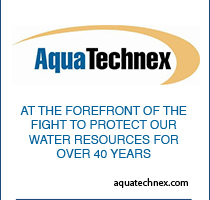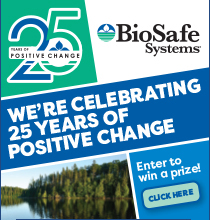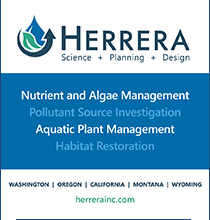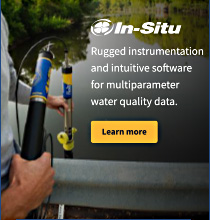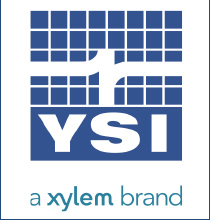by Jeremy Jenkins, Lake Protection Manager, Liberty Lake Sewer and Water District
The 15th annual Eastern Washington/North Idaho Regional Lakes Conference was held on February 6th, 2016 at the Spokane Community College Student Union.
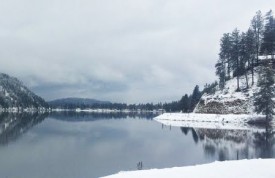 This year’s theme was Regional engagement for solutions to regional problems. Opening the event was David Stasney, Environmental Sciences Chair and Water Resource Program Instructor at Spokane Community College. He shared a video (https://youtu.be/S5EMDrv_7ec) showcasing the College’s Water Resource Technology program and new tools and services they want to offer the community. Involving students in field data collection, or even projects involving permits, means that they will be prepared to jump right into the region’s water issues (pun intended!). On a personal note, I am very excited to work with SCC and help them use and develop Liberty Lake as an “Experimental Watershed.”
This year’s theme was Regional engagement for solutions to regional problems. Opening the event was David Stasney, Environmental Sciences Chair and Water Resource Program Instructor at Spokane Community College. He shared a video (https://youtu.be/S5EMDrv_7ec) showcasing the College’s Water Resource Technology program and new tools and services they want to offer the community. Involving students in field data collection, or even projects involving permits, means that they will be prepared to jump right into the region’s water issues (pun intended!). On a personal note, I am very excited to work with SCC and help them use and develop Liberty Lake as an “Experimental Watershed.”
As always, a great group of speakers gathered in Spokane to share lake knowledge with the masses. First, Darren Brandt of Advanced Eco-Solutions presented results of his 2015 blue-green algae monitoring efforts across Idaho. Drought dominated the region in 2015, causing many lakes that do not normally see blooms to bloom for multiple weeks.
Next came a talk about a novel collaborative experiment done on Hayden Lake, ID, with Floating Treatment Wetlands (FTWs). Kristin Larson and Bob Steed of the Idaho Department of Environmental Quality shared results from their first season, showing that the FTWs were not as effective at nutrient removal on the lake as they are in small waste or stormwater retention basins. Furthermore, wakes from high density boating, waterfowl nesting, and the 2015 drought all affected the FTWs. Year 2 funding is currently in the works. Rumor on the street is that DEQ scientists will be working to publish the results of this research.
Dave Kluttz of Lakeland Restoration, an aquatic and terrestrial noxious weed control company, discussed lake treatment programs, highlighting innovations he has used to minimize impacts to lake users. For example, in 2015, Loon Lake board members with personal watercraft traveled ahead of the application boat to answer any questions folks had. Normally, the applicator does this, increasing treatment time.
If you have attended a WALPA conference in recent years, you may have heard a talk (or two) by Shannon Brattebo, an engineer with Tetra Tech’s surface water division. Shannon was recently elected Region 10 Director of NALMS, a slot vacated by Dr. Frank Wilhelm of the University of Idaho, who became NALMS President-Elect. Shannon presented information about a multiple year nutrient-inactivation project on Lake Ketchum in Washington’s Snohomish County. By dosing the lake with enough alum to bind with the water column phosphorus, as well as the internal nutrient load, the project was able to reduce surface TP by 95%, and increase Secchi disk depth by 133%!
Here in Eastern Washington, we are directly impacted by Idaho’s aquatic invasive prevention efforts. Tom Woolf, Aquatic Invasive Species Program Manager for the Idaho State Department of Agriculture, updated us on the state of our region’s fight against invasives. In 2015, 16 mandatory check stations at routes into and through Idaho inspected 64,157 vessels, finding 25 that were fouled with zebra and/or quagga mussels.
Avista Utilities owns and operates multiple hydroelectric facilities in this region, each of which must undertake FERC-required mitigation measures. Meghan Lunney of Avista’s Spokane River Implementation Team updated the group on Avista’s accomplishments over the past couple of years on local rivers, streams, and lakes: spillway gate replacement, boat launch improvements, bank stabilization, and wetland plantings.
Last on the agenda was Jim Ekins, a Water Quality Educator with the University of Idaho – Extension. Jim shared an overview of educational programs offered through his office that target all ages: K-12, college, and adults. His most wide-reaching program is Idah2o, a volunteer stream monitoring program for the entire state of Idaho.
Separate from the talks, but equally important to the success of the conference, plenty of networking opportunities allowed for important interactions between those from lake associations, scientific, environmental, recreational, governmental, and other communities to discuss water management issues relevant to all concerned.
One hundred folks attended the 15th annual Eastern Washington/North Idaho Regional Lakes Conference: quite a few new faces and even more familiar ones! We could not have accomplished this without the support of our amazing sponsors, listed below.
Next year, the 16th annual Regional Lakes Conference will be held the same weekend (February 4, 2017), in the same location (Spokane Community College). Stay tuned for more information. If you are interested in participating, or just learning more about this event, please contact Jeremy Jenkins at jjenkins@libertylake.org.


